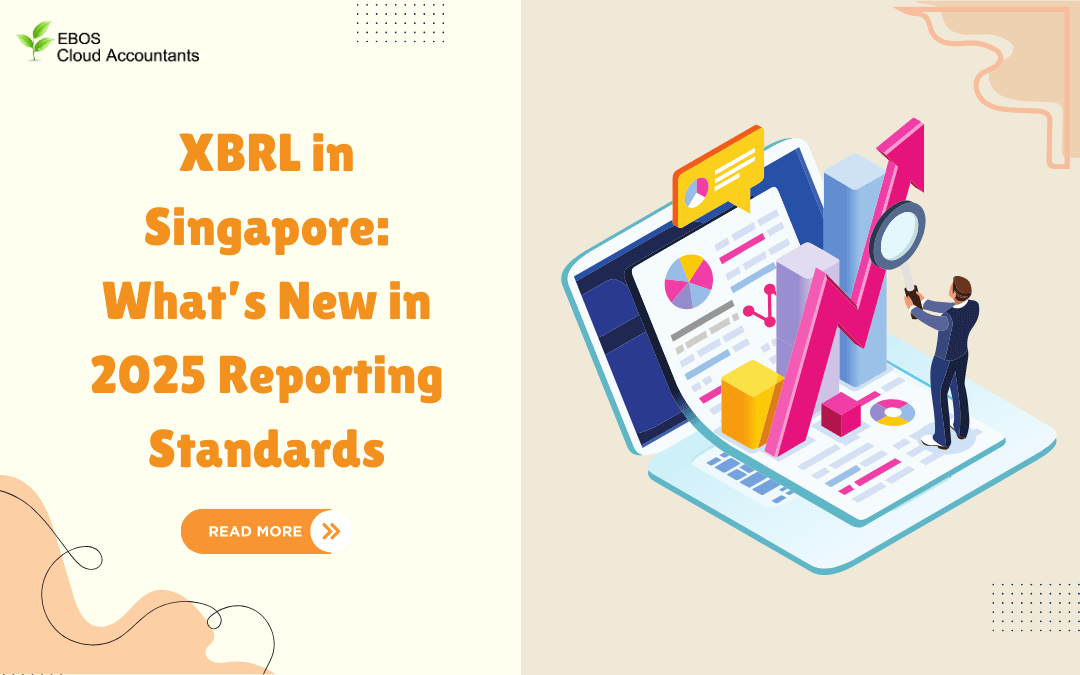As Singapore continues to cement its position as a global financial hub, regulatory and compliance standards are evolving to meet the demands of transparency and efficiency. One key area of transformation is the eXtensible Business Reporting Language (XBRL), which has become the backbone of financial reporting for companies in Singapore. Let’s explore what’s new in the 2025 XBRL reporting standards and how businesses can stay compliant and competitive.
Enhanced Data Granularity
In 2025, the Accounting and Corporate Regulatory Authority (ACRA) has introduced more detailed data points in XBRL filings to enhance financial analysis and comparability. Companies are now required to provide deeper insights into revenue streams, operational expenses, and sustainability metrics. This shift is designed to align Singapore with international financial reporting best practices.
What this means for businesses:
- More comprehensive disclosures may require updates to internal accounting systems.
- Companies can leverage this data granularity for better financial planning and decision-making.
Streamlined Filing Processes
ACRA has also rolled out a new digital filing portal, integrated with artificial intelligence (AI) to validate and pre-fill financial data. This enhancement reduces the risk of human error and speeds up the submission process.
Key benefits:
- Faster turnaround for financial statement submissions.
- Automatic error-checking to ensure compliance with Singapore Financial Reporting Standards (SFRS).
Sustainability Reporting Integration
One of the most anticipated changes is the inclusion of Environmental, Social, and Governance (ESG) metrics in XBRL filings. Starting in 2025, large and mid-sized companies are required to report on carbon emissions, diversity initiatives, and corporate governance in a standardized XBRL format.
Why this matters:
- Helps investors and stakeholders assess a company’s sustainability practices.
- Encourages businesses to adopt greener, more socially responsible operations.
Industry-Specific Taxonomies
Recognizing that different industries have unique reporting needs, ACRA has introduced sector-specific taxonomies. Financial institutions, tech firms, and manufacturing companies now have tailored XBRL templates that reflect their specific accounting and operational nuances.
Impact:
- More relevant financial insights for stakeholders.
- Simplified reporting processes for businesses operating in specialized sectors.
Preparing for the Transition
For companies in Singapore, staying ahead of these changes requires a proactive approach:
- System Upgrades: Ensure accounting software is compatible with the latest XBRL taxonomies.
- Training: Finance and compliance teams should be trained on new reporting requirements and the updated digital filing portal.
- Advisory Support: Engaging with financial reporting consultants can help smooth the transition and ensure full compliance.
Final Thoughts
The 2025 updates to Singapore’s XBRL reporting standards mark a significant step toward greater transparency, efficiency, and sustainability. By embracing these changes, businesses not only comply with regulations but also gain strategic insights that can drive growth and innovation. Staying informed and prepared is key to making the most of this evolving financial landscape.
Are you ready for the future of financial reporting in Singapore? Now is the time to assess your systems, train your teams, and leverage the power of XBRL for smarter business decisions.
Check out our website at https://ebos-sg.com/ to explore more articles and discover how our Cloud Accountant Services can support you on your business.







